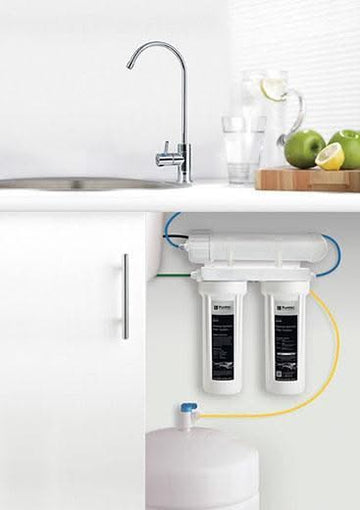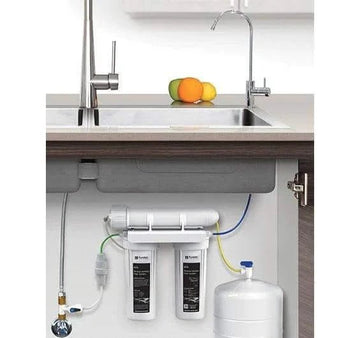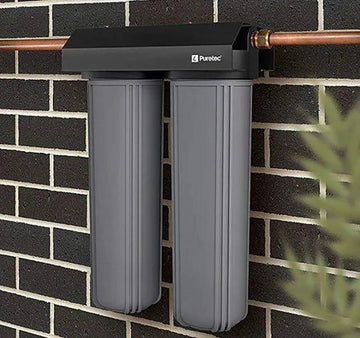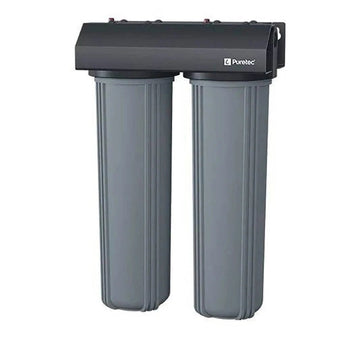Top Solutions for Filtering Drinking Water Contaminants
Worried about contaminants in your drinking water? Understanding the risks and the best filtration methods ensures your family has safe, clean water. This guide covers common drinking water contaminants, their health effects, and the best solutions to filter them out effectively.
Key Takeaways
-
Drinking water can contain chlorine, heavy metals, and microbial contaminants, posing health risks.
-
Effective water filtration methods, such as reverse osmosis and UV purification, can significantly improve water quality.
-
Regular maintenance and professional installation of water filters ensure optimal performance and long-term safety.
Common Contaminants in Australian Drinking Water
Chlorine and Its Byproducts
Chlorine is commonly used to disinfect water, but it can react with organic matter, forming harmful byproducts such as trihalomethanes (THMs). Long-term exposure to these chemicals has been linked to increased cancer risks.
Heavy Metals
Heavy metals like lead, mercury, and arsenic can leach into water supplies from industrial waste, old pipes, and mining activities. Exposure to these contaminants can lead to serious health issues, including neurological damage and kidney disease.
Microbial Contaminants
Bacteria, viruses, and parasites such as E. coli, Giardia, and Cryptosporidium can be present in untreated water. These pathogens can cause gastrointestinal illnesses and other severe infections if not properly filtered.
Health Risks of Drinking Water Contaminants
Chemical Contaminants and Long-Term Effects
-
Heavy metals: Linked to kidney failure, neurological disorders, and developmental issues in children.
-
Chlorine byproducts: Associated with an increased risk of bladder cancer and other long-term health concerns.
-
PFAS (per- and polyfluoroalkyl substances): Found in some Australian water supplies, these "forever chemicals" may contribute to hormonal disruption and immune system issues.
Microbial Risks
-
Acute infections: Drinking water contaminated with bacteria or viruses can cause vomiting, diarrhea, and dehydration.
-
Chronic exposure: Long-term exposure to waterborne pathogens may contribute to weakened immune systems and increased susceptibility to infections.
Effective Solutions for Filtering Drinking Water
1. Whole House Filtration Systems
Installing a whole house water filter ensures all taps deliver clean water, reducing contaminants before they enter your home’s plumbing.
2. Reverse Osmosis (RO) Systems
RO systems use a semi-permeable membrane to remove heavy metals, fluoride, and other dissolved solids, providing the purest drinking water.
3. UV Water Purification
Ultraviolet (UV) filtration eliminates bacteria, viruses, and parasites without the need for chemicals, making it an excellent solution for microbial contamination.
4. Carbon Block Filters
These filters effectively reduce chlorine, volatile organic compounds (VOCs), and bad taste/odor, enhancing the overall quality of drinking water.
5. Water Filter Pitchers & Faucet Filters
A budget-friendly option, these filters can improve taste and remove chlorine but may not be effective against heavy metals and microbial contaminants.
Puretec Water Filtration Products
Puretec CF Series Undersink Filter System
-
Removes chlorine, improving taste and odor.
-
Ideal for homes using town water with high chlorine levels.
Puretec ESR2-T5 Reverse Osmosis System
-
Eliminates fluoride, heavy metals, and other contaminants.
-
Provides ultra-pure drinking water with minimal wastage.
Puretec Hybrid G6 Filtration System
-
Combines filtration and UV purification.
-
Effectively removes bacteria, viruses, and PFAS chemicals.
Why Professional Installation Matters
Ensuring Proper Setup
Licensed plumbers ensure the correct installation of filtration systems, reducing the risk of leaks and ensuring maximum efficiency.
Ongoing Maintenance & Support
Regular maintenance, including filter replacements and system inspections, keeps your water filtration system performing optimally.
Final Thoughts
Filtering your drinking water is essential for ensuring health and safety. Whether using a reverse osmosis system, UV filtration, or whole-house filters, choosing the right solution tailored to your water quality needs is crucial. Investing in a high-quality filtration system and professional installation guarantees clean, safe water for years to come.
Frequently Asked Questions
What is the best method for removing chlorine from water?
Activated carbon filters are highly effective at reducing chlorine and improving taste.
Do reverse osmosis systems remove all contaminants?
RO systems remove most contaminants, including heavy metals, fluoride, and dissolved solids, but may require additional filtration for bacteria and viruses.
How often should I replace my water filter?
Filter replacement schedules vary by system but typically range from 6 to 12 months for optimal performance.
Is boiling water enough to purify it?
Boiling water kills bacteria and viruses but does not remove heavy metals, chlorine, or chemical contaminants.
Can I install a water filter system myself?
While some filters are DIY-friendly, professional installation ensures proper functionality and compliance with plumbing regulations.




























